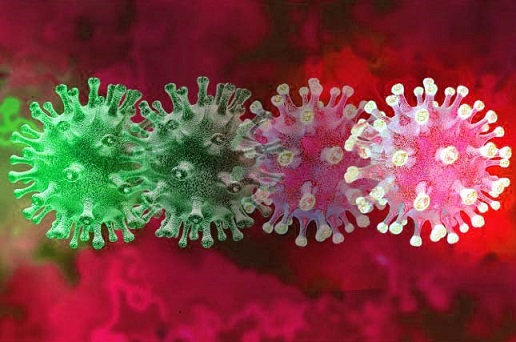Researchers Warn of Rapidly Evolving SARS-CoV-2 Strains Threatening Global Health
Nikhil Prasad Fact checked by:Thailand Medical News Team Oct 17, 2025 4 months, 1 week, 23 hours, 12 minutes ago
Medical News: A new study by Spanish and American scientists has revealed that SARS-CoV-2, the virus responsible for COVID-19, is mutating faster and in more complex ways than previously thought. Despite a decline in the diversity of viral genomes in individual infections, the virus continues to evolve at a rapid, steady pace across the global population—raising concerns about its long-term adaptability and persistence.
 Researchers Warn of Rapidly Evolving SARS-CoV-2 Strains Threatening Global Health
Researchers Warn of Rapidly Evolving SARS-CoV-2 Strains Threatening Global Health
Researchers from the Centro de Biología Molecular Severo Ochoa, Universidad Autónoma de Madrid, Instituto de Investigación Sanitaria-Fundación Jiménez Díaz University Hospital, Institut de Biologia Molecular de Barcelona, Northwestern University in Chicago, Universidad Complutense de Madrid, and Universidad Politécnica de Madrid conducted the detailed investigation. In this
Medical News report, the team emphasized that SARS-CoV-2’s mutation rate remains among the highest of all known RNA viruses, and that the virus’s “mutant spectrum”—the cloud of slightly different genetic versions existing within each infected person—continues to play a critical role in its adaptability and survival.
The shrinking diversity of SARS-CoV-2 genomes
By analyzing virus samples collected from COVID-19 patients in Madrid between 2020 and 2022, researchers discovered a surprising trend. The later waves of the pandemic showed a marked reduction in mutant spectrum complexity—meaning that viruses circulating in 2022 had fewer alternative mutational routes compared to those from 2020. However, the overall rate of evolution measured through consensus genome sequences remained unchanged. This paradox suggests that while each infection produces fewer genetic variants, the virus as a whole continues to adapt efficiently across the population.
The team found that the average number of mutations per SARS-CoV-2 genome increased dramatically—from just 7.5 in the first wave to 78.5 in the seventh wave. Most of these changes occurred in the spike protein, the key part of the virus that binds to human cells. Mutations in this region may have contributed to the emergence of variants such as Delta and Omicron, which demonstrated increased transmissibility and immune evasion.
Viral adaptation to the human host
The researchers concluded that the reduced diversity inside individual hosts is likely due to the virus’s growing adaptation to humans rather than an improvement in its replication accuracy. In controlled lab experiments using Vero E6 cells, viruses from early and late waves showed similar mutation complexities, indicating that external epidemiological or host factors—not internal viral machinery—drive these genetic shifts.
This adaptation may also reflect a narrower range of tissues the virus can replicate in, or selective pressures from widespread immunity. As the population develops h
igher resistance through infection and vaccination, only specific viral forms capable of evading these defenses continue to thrive.
Why this matters for the future
The study highlights that SARS-CoV-2 remains an evolving threat. The contraction of its mutant spectrum does not mean it is becoming weaker; rather, it has achieved a more specialized and efficient form within the human population. Such evolutionary stability could allow the virus to persist for years, potentially giving rise to new lineages with unexpected properties. The authors warn that understanding the virus’s mutation behavior is crucial for predicting future variants and preparing vaccines that can keep up with its rapid evolution.
The study findings were published in the peer-reviewed journal: Proceedings of the National Academy of Sciences (PNAS).
https://www.pnas.org/doi/10.1073/pnas.2515706122
For the latest COVID-19 news, keep on logging to Thailand
Medical News.
Read Also:
https://www.thailandmedical.news/articles/coronavirus
https://www.thailandmedical.news/articles/long-covid
